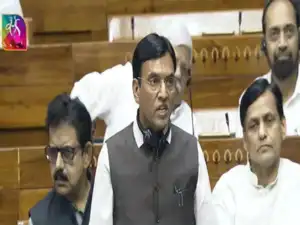
India parliament passes sports governance reform bill
India Clears Landmark Sports Governance, Anti-Doping Reforms
India sports governance reform took a giant leap forward as both the Lok Sabha and Rajya Sabha passed two landmark pieces of legislation—the National Sports Governance Bill, 2025 and the National Anti-Doping (Amendment) Bill, 2025—on August 11–12, 2025. These reforms aim to modernize sports administration and align India with global best practices.
Transforming Sports Administration
India sports governance reform officially gained momentum on August 11–12, 2025, when Parliament passed two groundbreaking bills: the National Sports Governance Bill, 2025, and the National Anti-Doping (Amendment) Bill, 2025. These represent the broadest overhaul in India’s sports administration in decades. Moreover, they position the country strategically as it pursues a bid for the 2036 Olympic Games.
What These Bills Deliver
The National Sports Governance Bill establishes a transparent and accountable structure by mandating a National Sports Board (NSB) to register, supervise, and even de-recognise sports federations that commit violations. It also introduces a National Sports Tribunal, vested with the powers of a civil court, to adjudicate conflicts related to federation governance or athlete grievances—with final appeal rights reserved only for the Supreme Court.
Importantly, the bill enforces term limits, age eligibility (up to 75 years where applicable), and increased inclusivity, requiring athlete and women representation on executive committees.
On the other hand, the Anti-Doping Amendment Bill grants operational autonomy to NADA, removing previous governmental oversight and aligning testing procedures with WADA norms and UNESCO standards. It restricts appeals to the Court of Arbitration for Sport (CAS) and requires the use of WADA-accredited laboratories.
Legislative Momentum and Political Reactions
Sports Minister Mansukh Mandaviya declared this act as “the single biggest reform in Indian sports since independence,” underscoring its scale and impact. Simultaneously, P. T. Usha, serving in the Rajya Sabha, hailed the reform as ending decades of stagnation in sports administration.
Meanwhile, members of the opposition voiced concerns—especially about the Limited application of RTI rules, notably exempting BCCI unless government funded. They also criticized the bills’ expedited passage via voice vote amid protests, alleging excessive centralisation.
Significance and the Road Ahead
These reforms signal a seismic shift towards governance aligned with global standards, intended to enhance sports administration, anti-doping protocols, and athlete welfare in India. They chart the path for structured oversight, quick dispute resolution, and a more equitable sports future—especially critical as India eyes hosting the 2036 Olympics.

